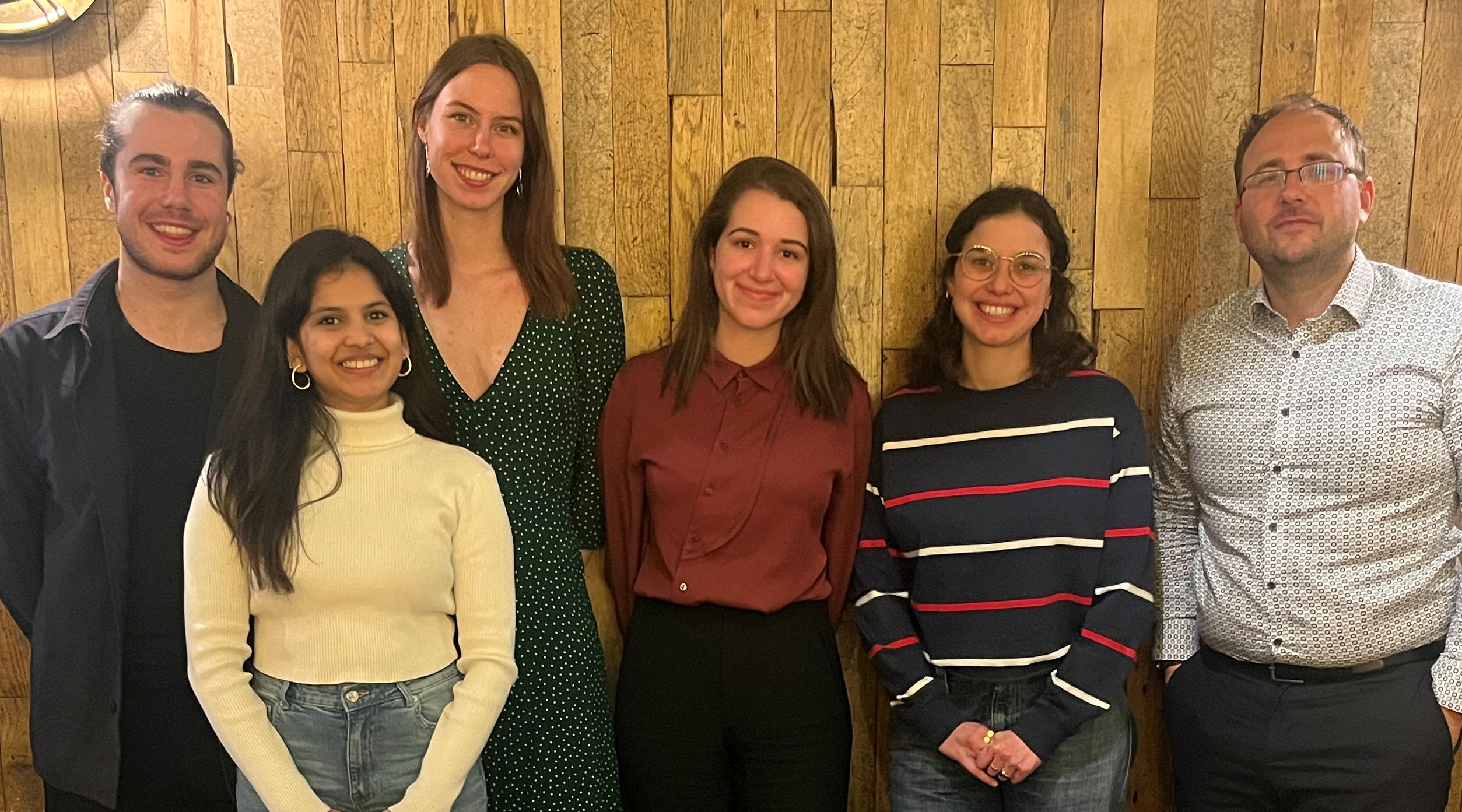LSE Law students recently submitted a third-party intervention before the European Court of Human Rights, explaining why the emergence of widespread use of social media requires states to take additional measures to ensure the fairness of elections.

[From left to right: Nathan Whetton, Anushka Gupta, Julia Smakman, Vasiliki Poula, Lara Greiff and Dr Martin Husovec]
The intervention was prepared in the case of Ben Bradshaw and others v United Kingdom. Its main focus is to what extent the states of the Council of Europe, such as the United Kingdom, must protect the integrity of their electoral processes against manipulation of voters by other actors through of social media. The brief was prepared by five LLM students (LSE ‘22) — Anushka Gupta, Lara Greiff, Vasiliki Poula, Julia Smakman and Nathan Whetton — as a part of the ECtHR Intervention Clinic supervised by Dr Husovec, Assistant Professor at LSE Law School.
The brief argues that the states must impose minimum pre-election transparency requirements for digital political ads on social media to achieve fair and free elections in the digital world. It asks judges to recognize that the principles applicable to broadcast media are transferable to the new digital context because the concerns are of the same nature. Furthermore, it argues that serious and widespread irregularities that domestic authorities fail to investigate should constitute a violation of the European Convention on Human Rights. Investigations should be conducted by independent bodies that can look into disinformation’s effects on elections and then recommend reform to facilitate the public debate.
“Only by shining light on serious irregularities can we foster the trust of the voters in the integrity of the political process”, said Dr Husovec, summarizing the brief.
The full brief is available here.
Click here to read more about the ECtHR Clinic, an extra-curricular activity for LSE LLM students, run by Dr Husovec in collaboration with an NGO, the European Information Society Institute (EISi).